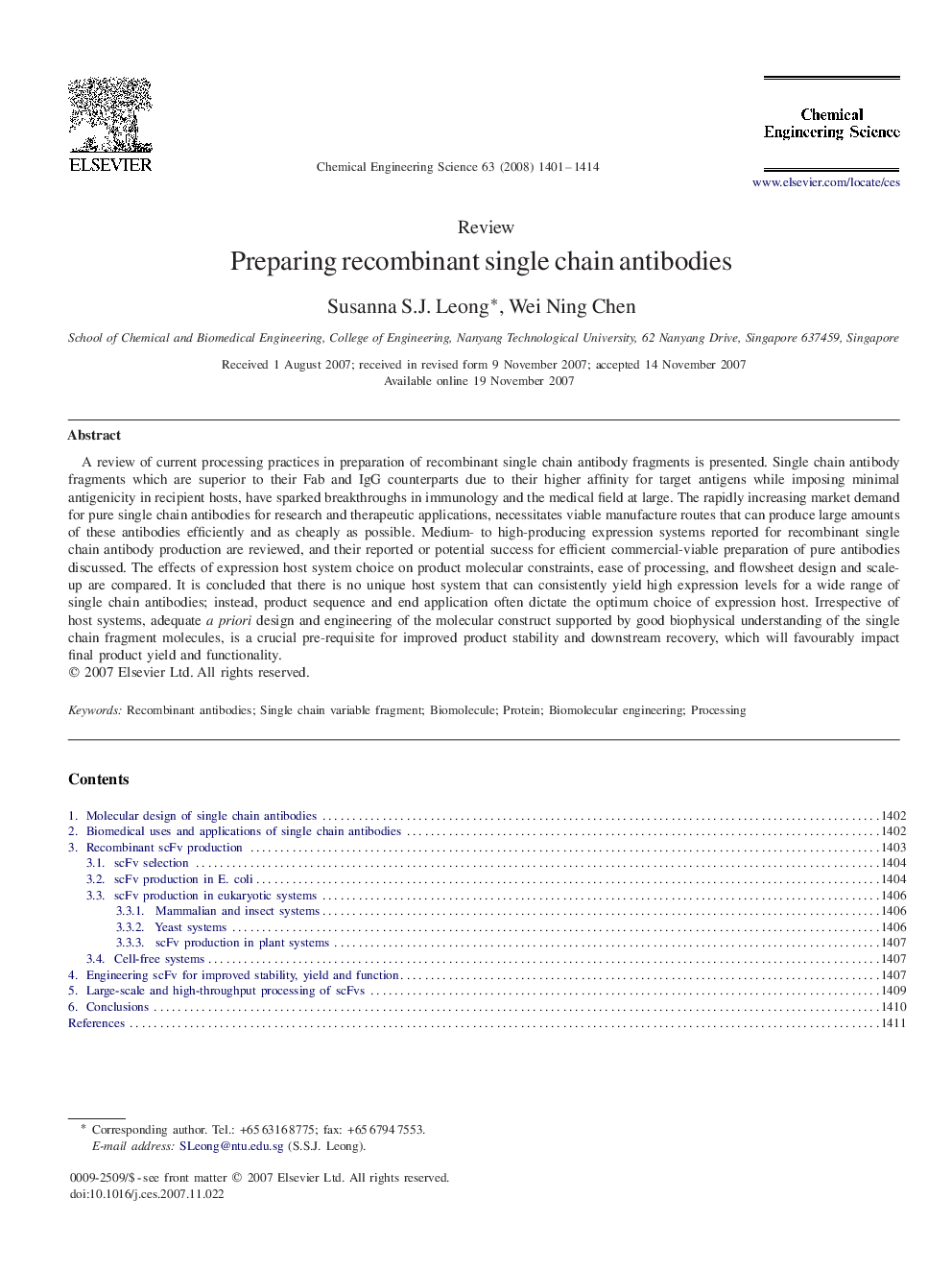| Article ID | Journal | Published Year | Pages | File Type |
|---|---|---|---|---|
| 159050 | Chemical Engineering Science | 2008 | 14 Pages |
A review of current processing practices in preparation of recombinant single chain antibody fragments is presented. Single chain antibody fragments which are superior to their Fab and IgG counterparts due to their higher affinity for target antigens while imposing minimal antigenicity in recipient hosts, have sparked breakthroughs in immunology and the medical field at large. The rapidly increasing market demand for pure single chain antibodies for research and therapeutic applications, necessitates viable manufacture routes that can produce large amounts of these antibodies efficiently and as cheaply as possible. Medium- to high-producing expression systems reported for recombinant single chain antibody production are reviewed, and their reported or potential success for efficient commercial-viable preparation of pure antibodies discussed. The effects of expression host system choice on product molecular constraints, ease of processing, and flowsheet design and scale-up are compared. It is concluded that there is no unique host system that can consistently yield high expression levels for a wide range of single chain antibodies; instead, product sequence and end application often dictate the optimum choice of expression host. Irrespective of host systems, adequate a priori design and engineering of the molecular construct supported by good biophysical understanding of the single chain fragment molecules, is a crucial pre-requisite for improved product stability and downstream recovery, which will favourably impact final product yield and functionality.
